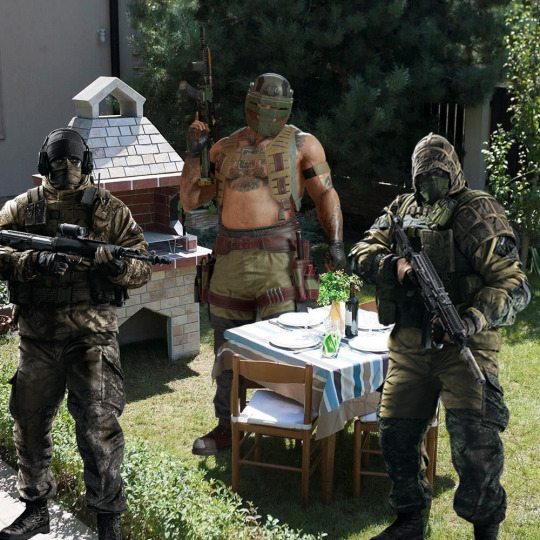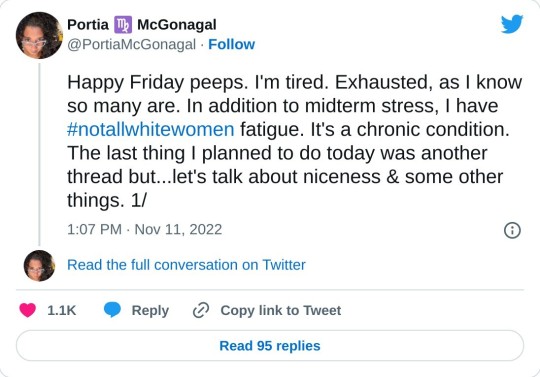#412 candid
Text
hey there tumblr genuinely so excited to see your ocs and to see people go off about the characters they’ve made (seriously if anyone wants to off about their kiddo my dms are always open)
but for now… do y'all like tabletop characters? what about disaster bis? what about a kind trickster devoted to a god of fun? or a paladin put into cryostasis as the world was ending only to wake up a ghost far further along in time than expected? or maybe y'all are into an ancient ghost in a shithead to lovers slow burn story with someone both engaged and also still alive? or how about knight and prince romance dynamics? or what about a god who became a god because his boyfriend wanted to save him so badly he willed him divine?
well then meet Candid - he’s an npc from a game of blades in the dark I’ve been running for two years now and all of the above apply to him in some way. He originally started as a consequence when one of my pcs had a muddled attune roll (aforementioned boyfriend Dante) but has stumbled his way into reluctant godhood via the power of love and stupidity.
He comes equipped with art - for now I’ll just share one of my favorite pieces by the lovely suzu below - several pinboards (his own, one he shares with Dante, and one from a potential future where Dante becomes his Paladin), and several playlists (his own and the cante one).

23 notes
·
View notes
Text
Starmer’s so-called “landslide victory” is built on sand
A deeply unpopular leader, Starmer has not secured the resounding endorsement his 412 seat tally would suggest, while record numbers of Green and independent MPs could pose a robust leftist challenge to Starmer’s Government – if they get organised
Keir Starmer, an ersatz Blair without a hint of his charisma or vision, is now Prime Minister, despite securing a vote share six percentage points lower than Jeremy Corbyn in 2017. These results expose the widespread disillusionment, if not outright resentment, towards both Labour and the Tories. Smaller parties and independents had a great showing, with shock wins for Greens and pro-Palestine independents, but also Farage's Reform Party (if indeed you can call a limited company with a CEO and no membership a party). However, a large minority of eligible voters chose not to vote at all, with turnout dropping to 60 percent. This matches the record low set in 2001, when everyone knew Blair was set to be re-elected on a landslide. In elections expected to produce a new government, turnout usually rises – but not so this time. Shockingly, Labour’s mantra of “false hope is worse than no hope” failed to inspire any hope for real change.
It is a damning indictment of our voting system that a party can win over two thirds of seats and celebrate a “landslide victory” after winning over just one in five eligible voters. (Out of the 60 percent who voted, Labour only won a third of the vote.) Thanks to our twee unwritten constitution, this technical win grants Keir Starmer the right to form an electoral dictatorship for the next five years. However, the results do offer some silver linings...
Corbyn won his seat as an independent with a 7,250 vote lead over Labour, after he was blocked from running as Labour’s candidate in Islington North, a seat he'd held for 40 years. Labour also lost Chingford and Woodford Green to Ian Duncan Smith, after Faiza Shaheen was similarly blocked by Labour on dubious grounds and continued her campaign as an independent – ultimately this helped IDS win with around 17,200 votes, compared to Faiza Shaheen and the Labour candidate who each got around 12,500 votes. Shadow cabinet minister Jonathon Ashworth lost his seat to a pro-Palestine independent, along with three other Labour MPs, while another pro-Palestine independent left prominent Terf and shadow health minister Wes Streeting clinging on by a thread. Israel's brutal escalation of its 75 year-long genocide in Palestine has not only dismayed Muslims and anti-Semites, as the media love to imply, but a diverse coalition of people united by their outrage at leading politicians excusing, if not actively cheerleading, such barbarity. These results prove there is an electoral cost for enabling rogue states to commit crimes against humanity.
Beyond the three largest parties, the balance of power in Parliament now lies with a socialist, environmentalist, pro-Palestine left. The Greens won all four of their target seats – not only in the young, urban constituencies of Brighton Pavilion and Bristol Central, but also in the rural, once solidly Tory constituencies of Waveney Valley and North Herefordshire – an achievement few really thought possible. (Greens and pro-Palestine independents also came second in a record number of constituencies, laying the ground for more gains next time.) Those four Green MPs, along with Corbyn and the other four pro-Palestine independents, make up nearly double Reform’s five MPs. As such, we will have a principled leftist grouping in Parliament, not beholden to the Labour whip, to hold Starmer to account.
There is hope the new pro-Palestine independents can put aside subtle philosophical differences and work together to offer a robust left opposition to Starmer. We could see Corbyn and other independents join the Green Party. This would be a strategic move; they could still reasonably claim to be independent voices for their constituents as Green MPs, as the Green Party does not whip its MPs like other parties. Meanwhile, they would benefit from this established party’s resources, networks and mass membership. The highly democratic structure of the party means, if they brought a lot of their voters with them, new Green MPs could even secure a change to any Green policies they disagreed with. As for socialist Labour MPs, we could even see some defect to the Greens now they've secured their seats, especially if Labour remains a deeply hostile environment for them. Defections from Labour seem unlikely at this stage, but they cannot be ruled out.
More than anything, we should take heed that our best chance of enacting real change lies in our communities, through grassroots organising and direct, solidaristic action. Green and pro-Palestine independents only won by rooting themselves in their communities, engaging with the voters they hoped to represent, and inspiring masses of people to join their campaigns. We cannot rely on career politicians, whose class interests are diametrically opposed to ours, to protect us and our interests.
There's more to politics than elections, which only come around every few years and, all too often, seem to yield no real change. Real progress does not come from above. It is not gifted to us by the powers on high. It is fought for, from the ground up. In the words of Frederick Douglass, power concedes nothing without a demand. We must keep faith, keep fighting and keep organising. This election shows us that hard work can bear fruit. We know a better world is possible, but we won't achieve it by just voting. It’s on us to bring it about.
#keir starmer#starmer#jeremy corbyn#corbyn#wes streeting#faiza shaheen#labour party#labour#conservative party#conservatives#tories#green party#greens#palestine#general election#uk election#democracy#uk politics#uk#politics#my posts
35 notes
·
View notes
Text
Tldr; i need help affording end of life care for one of my dogs. you can help by sharing this post and donating what you’re able to (more info below image). thank you <3

(image description; a red dog with pointed ears is resting his head on the lap of his owner and looking in to the camera)
one of my dogs has been sick recently and when we took him to the vet we found out that it’s a lot worse than we realized. within the last month he’s accumulated fluid in his abdomen and chest from a mass in his liver. we tested his stool + urine, did blood work + x rays, and scheduled an ultrasound to see if there’s any chance of it being operable. they drained over 350ml of fluid from his abdomen and put him on a diuretic + pain meds to help keep him comfortable. we won’t know for certain until after he has an ultrasound but the prognosis isn’t very good either way. it’s very likely that he’ll continue to fill up with fluid until he goes in to organ failure from the masses and we were told he only has a few months left.
I’m trying to be strong for him and give him the best chance that we can but it will require some serious intervention and management. We’re adjusting his diet and adding some supplements along with his meds and praying that it buys him more time. Even if they are able to operate there’s still a good chance that it could grow back…
But I’m holding out hope for his recovery and asking for all of the help that i can get. We have a shih tzhu that’s older than him and we were able to get her heart condition stabilized so much that she went from being a candidate for euthanasia to having a normal sized heart (it was so enlarged when we got her that it was pushing her trachea out of place), no murmur, and is very well managed with meds. I’ve depended on Vin for so much and for so long that he will always be a part of my life.
I’m just asking for any help that we can get. We’re in the process of filing for bankruptcy so we don’t have any credit cards to fall back on. We’re supported by my husbands single income as I struggle to find a part time job that can accommodate my disability. We were able to get a discount on our last visit because we receive food assistance but it still came to just under $400 ($381 to be exact). It’s a good deal for the amount of services that we received but it’s money that we were setting aside for rent.

(Image description; a cropped image of a bank statement that reads “At Humane Society Of, [redacted] On [Redacted] From Card number [Redacted]” and a charge for $381.15 labeled as Processed)
Our next visit is going to cost a little bit more than our last as the ultrasound is from a team that travels to the clinic. We were quoted around $412 for the next visit but it may be more if he needs fluid drained again… not counting prescription food, meds, or supplements, we’re already down over $800+ and that’s just for diagnostics and early stages of treatment.
It’s an embarrassing position to be in but the reality is that I’m struggling to keep up as it is. I really appreciate anyone who shares this post and/or donates to help us cover the costs of his medical expenses. I’ll make sure to update if I’m able to find a job, especially if I can get in at a clinic for discounted treatment (I have a history of vet assisting)


(Image descriptions; the first is a red shiba inu sitting on a couch next to a cat. both are looking at the camera. the second image is the same red dog cuddling with an elderly gray dog on a bed)
Ways you can help;
1. Share this post !
i totally understand if you aren’t able to give any money and i don’t want you to feel obligated to. sharing does help even if you don’t have a lot of followers
2. you can donate money for Vin’s recovery in the following ways;
- Paypal @ ReyOfTheLight
- Venmo @ rey-fillback
- cashapp $reyfillback
43 notes
·
View notes
Text
it's very interesting to see Americans trying to idealise the recent UK election. I've seen a couple of posts like "everyone got together and tactically voted the right wing party out!" and "this is what we need to emulate in November". And ummmm, I don't know how to tell you this but that's not what happened.
This election wasn't a great success for Labour, as I've seen depicted. This election was the Tories shitting the bed after 14 years of bullshit rule. Labour only got 33.3% of the actual vote, only an increase of 1.6% of what they received last election (where they were trounced). The Tories, on the other hand, saw their vote share fall by 19.9%.
The Tories went into the election already defeated. Their government ministers have been quitting and retiring for months (because you're limited on the jobs you can get within six months of leaving government). The rats left the sinking ship. Elmo usually runs against the incumbent prime minister. He ran against Keir Starmer (labour leader), instead.
This wasn't an election for voting tactically, this was an election where we knew the Tories were out. We knew we were getting Labour. It was a game of 'who can we get in instead?'. The Greens got a record breaking 4 seats, the Lib Dems soared, we got independent candidates in.
But the Tory vote went somewhere, and it wasn't all to the left. The Reform Party (right wing scumbags) picked up 5 seats with 14.3% of the national vote (compare that to Labour's 412 seats and their vote share quickly). Their campaign was designed to lure in the dispossessed voters, and they aimed to take working class and Brexit voting seats (which they will now likely abuse for 5 years).
This election sees trust in politics at an extreme low. People didn't come out to vote. People didn't vote for more Tory bullshit. The Tories have broken any trust they may have had, so their vote left them, or it didn't come out at all.
Americans, this is not what you're looking to emulate. Your Republicans have not been in power solidly for the last 14 years, having scandal after scandal after scandal, speedrunning through prime ministers. They are not the Tories, and your voting system is not ours. The Tories tripped and fell into the grave that they dug for themselves. You cannot expect Trump to be so courteous.
15 notes
·
View notes
Text
Anarchist Studies, Volume 14, Issue 1, pp. 84–91
2006
Research Note: Αναρχία—What did the Greeks actually say?
URI GORDON
Doctoral Candidate in Politics
University of Oxford
[email protected]
ABSTRACT
This article examines a range of uses to which the word “anarchy” and its derivations were put in ancient Greek sources. Perhaps not surprisingly, the majority of instances indicate that the negative application of the word as a synonym for confusion and disorder was prevalent from ancient times. However, there are also several eminently political uses, which are quite telling in their prefiguration of contemporary anarchist values—namely the Athenians’ reference to 404 BC as the “year of anarchy”; the uses of the word by Plato and Aristotle in their critiques of democracy; and the association of anarchy with the defiant actions of Antigone in the plays of Aeschylus and Sophocles.
The ancient Greek origin of the word “anarchy” is a matter of common knowledge, and it has become a predictable convention to mention it at the outset of almost any discussion of anarchism as a political movement in the modern era. At the same time, as far as I am aware, no one has ever looked at the actual functioning of the word in classical sources. Instead, anarchist and non-anarchist commentators alike have inevitably satisfied themselves with second-hand exercises in Greek etymology, removing the word from its discursive context and ignoring the complex array of meanings it had for ancient writers. What I propose here, then, is to give attention to the actual uses to which the word was put in classical Greek. As I think will become immediately clear, such an exercise is of more than a merely historical interest.
Greek political culture revolved around citizenship in the polis, the city-state form that dominated political organization in the Hellenic world form the archaic period (c.800 BC) to the strong-armed unification of Greece under Alexander the Great (356–323 BC). Due in part to the peninsula’s geographic conditions, which meant that many settlement-clusters developed in relative isolation, poleis bringing together hundreds of farming households were largely self-sufficient and enjoyed economic and political autonomy for centuries. The typical Greek polis was a complex hierarchical society, with chattel slavery in agricultural households serving as its economic base. Sharply separated from domestic life was the citizen body, in which a certain rough equality obtained among male property owners. Citizenship was not necessarily “democratic”—in Sparta, all soldiers/citizens belonged to an assembly that elected a ruling council, which had legislative authority and advised the King. But in whatever form, the ideal of citizenship in a united political community seems to have been universally accepted by all literate classes. The polis itself was a matter for collective pride and was valued beyond question as the hallmark of the superiority of Greek civilization to the lifestyles of surrounding “barbarian” tribes. (See the bibliography for some further reading on the history and character of Greek political societies.)
Given the pervasive currency of this worldview, it is perhaps not surprising that, as T. A. Sinclair notes, “there was no philosophy of anarchy in Greek political theory.”[1] There are some possible exceptions to this observation: there were Cynics such as Antisthenes (a pupil of Socrates, c.444–365 BC) and his own pupil Diogenes of Sinope (412–323 BC), who looked with disdain on conventional values, wealth and social status, and who would have seen government as opposed to a life in full accordance with nature. Unfortunately only small fragments of Cynic writings have survived, but their ideas are thought to have later influenced Zeno of Citium (333–264 BC), founder of Stoicism, “who distinctly opposed his conception of a free community without government to the state-utopia of Plato… repudiated the omnipotence of the state, its intervention and regimentation, and proclaimed the sovereignty of the moral law of the individual.”[2] However, the Cynics’ purism drove them to oppose any organised intervention in politics, making their “anarchism” philosophical at best. While the ease with which later developments in Stoicism were appropriated for the peace of mind of the Roman emperor Marcus Aurelius (121–180 AD) shows that its anarchist resonances were neither obvious nor perennial. Finally, neither Cynics nor Stoics are known to have used the actual concept “anarchy.”
Surprisingly, the entire corpus of electronically surveyable literature in ancient Greek contains only 47 instances of the word “anarkhia” or its derivations.[3] Compared to 549 instances of “demokratia” and 422 of “oligarkhia” in the same database, the word does not seem to have occupied a significant place in the literary vocabulary of the time. Among these 47 instances, moreover, the majority of cases employ the word just as many non-anarchists might do today—as a catch-all synonym for confusion, disorder, tumult and license. Thus in the play Hecuba by Euripides (c.480–406 BC), the heroine, fearing for her daughter’s body, says that “the mob knows no restraint, and the unruliness [anarkhia] of sailors exceeds that of fire.”[4] Another playwright, Aeschylus (c.525–456 BC), has his Clytaemnestra (wife of king Agamemnon, who fought against Troy) recalling the warning that “the mob’s anarchic will [dêmothrous anarkhia] might overturn the Council.”[5] While the historian Thucydides (c.460–395 BC) attributes the military failures of the Syracusans in part to “the troops’ disorder [asyntakton anarkhian].”[6] The same type of usage is also found in the historical work of Herodotus (c.484–430 BC), as well as with later Greek-writing historians such as Diodorus Siculus (fl.50 AD) and Flavius Josephus (c.37–100 AD). We can thus see that, far from being a subsequent “corruption,” the negative and condemnatory connotations of the word anarchy have burdened it from earliest times.
Let us look, however, at other cases from ancient Greece in which the word anarchy is used in a more distinctly political sense. There is, for instance, the single occasion when a Hellenic population appears to have matter-of-factly used the word to refer to its own situation: the Athenian “year of anarchy,” 404 BC. This is something of a curiosity, since the circumstances of that year were anything but anarchic. As a matter of fact, Athens was at the time under the very strong rule of an oligarchy—The Thirty—installed by the Spartans following their victory in the second Peloponesian war of that same year. Moreover, there was literally an Archon in place, installed by the oligarchs, in the person of Pythodorus. However, according to the historian Xenophon (c.430–355 BC), the Athenians refused to apply here their custom of calling the year by that archon’s name, since he was elected during the oligarchy, and “preferred to speak of it as the year of ‘anarchy.’”[7] Despite its counter-intuitive appearance, this first popular application of the word anarchy is very telling. It resonates with a mass symbolic defiance, refusing the recognition that a ruler was supposed to receive in everyday language. It was this defiance which led to the restoration of democracy in Athens the following year.
Democracy, of course, was far from a positive ideal for the great political theorists of ancient Greece, Plato and Aristotle. And it was always in the context of discussing democracy that they made their rare uses of the word anarchy—making for the close association between the two concepts which would prevail well into the modern era.[8] The two philosophers’ famous mistrust of democracy, rooted in their contempt for popular power of any kind, was expressed in their arguments for democracy’s inherent vulnerability and its preponderance to deteriorate into tyranny. However, it should be noticed that what enabled Plato to present such arguments in the Republic was the complete detachment of his account of democracy from the realities of such systems of government, in Athens and elsewhere. Nowhere does his description reflect the constitution that sentenced his mentor Socrates to death, the structured, lawful and impeccably stratified Hellenic democracy. Instead, we find an account that comes very close to what we might intuitively call anarchy, though for Plato this is an entirely negative affair. In democracy, he says, there is no enforceable political authority or stability of the state, “no necessity… for you to govern… even if you have the capacity, or to be governed, unless you like, or to go to war when the rest go to war, or to be at peace when others are at peace, unless you are so disposed.”[9] This portrayal is what sets the ground for Plato’s account of such a state’s subsequent deterioration into tyranny. Democracy in his view makes for far too much equality. It loosens what Plato considered to be the natural hierarchy and authority obtaining between slave and master, man and woman, parent and child. His allegorical youngster’s soul, divided between an oligarchical self and a democratic self, is besieged by the corrupting and evil influence of the latter. Democracy causes the soul to “drink too deeply from the strong wine of freedom,” breeding desires whose false councils introduce “insolence and anarchy and waste and impudence hymning their praises and calling them by sweet names; insolence they term breeding, and anarchy liberty [anarkhian de eleutherian], and waste magnificence, and impudence courage.” So pervasive is the corruption that “anarchy finds a way into the private houses, and ends by getting among the animals and infecting them.”[10] In order to avoid the dangers of anarchy, Plato concludes that habits of dominance and obedience must be instilled deeply into the soul of the individual. “This task of ruling, and being ruled by, others must be practised in peace from earliest childhood; but anarchy must be utterly removed from the lives of all mankind, and of the beasts also that are subject to man.”[11]
It is important to note that, for Plato, anarchy is never a distinct class of political association. Since the concept is entirely subsumed into his discussion of democracy, it is not understood as requiring a separate theoretical category alongside oligarchy, tyranny, democracy, etc. Nevertheless, Plato’s account does supply us with an important understanding about anarchy that remains intact regardless of his crusade against it. This is that anarchy represents not merely the lack of government conceived as statelessness, but also the thorough erosion of rank in non-governmental spheres—between classes, age-groups and genders.
Aristotle’s association of anarchy with democracy is essentially identical to although his depiction thereof is never as colourful. The concept appears again as a form of democratic deterioration, but in keeping with Aristotle’s method it is appropriately situated in empirical observations rather than in metaphorical speculation. In democracies such as Thebes and Syracuse, we are told, the upper classes were motivated to stage a coup by their contempt for the prevailing “disorder and anarchy [ataxias kai anarkhias]” in the affairs of the state.[12] Also, in many cases the nobles will form factions with one another, and create them among the masses, “and so bring about a suspension of government [anarkhian].”[13] Alternately, in a tyranny Aristotle sees “democratic” features, namely “license among slaves” [anarkhia te doulôn] as well as among women and children. “A constitution of this sort,” he concludes, “will have a large number of supporters, as disorderly living [zên ataktôs] is pleasanter to the masses than sober living.”[14] Aristotle, like Plato, was not interested in delineating anarchy as a separate political form. However, unlike Plato, he is able to see anarchy as more than an abstractly corrupting influence, since its connection with democracy portrays it as desirable by the masses, and even as an implicit goal of popular insurrection.
The explicit connection of anarchy with a conscious human will appears only twice in classical Greek literature. This is perhaps the most intriguing example since, although penned by two different authors over a gap of several decades, they both refer to the same act by the same person. If we are looking for the first-ever anarchist, here she is:
Antigone: I at least will say something to the rulers of the Cadmeans: even if no one else is willing to share in burying him I will bury him alone and risk the peril of burying my own brother. Nor am I ashamed to act in defiant opposition [apiston tênd’anarkhian] to the rulers of the city. A thing to be held in awe is the common womb from which we were born, of a wretched mother and unfortunate father. Therefore, my soul, willingly share his evils, even though they are unwilling, and live in kindred spirit with the dead. No hollow-bellied wolves will tear his flesh, let no one “decree” that! Even though I am a woman, I will myself find the means to give him burial and a grave, carrying the earth in the fold of my linen robe. With my own hands I will cover him over—let no one “decree” it otherwise. Take heart, I will have the means to do it.[15]
In the person of Antigone, a long-standing inspiration to feminists, we also find a clear prefiguration of two of the most important concepts attached to anarchist practice in its contemporary idiom: disobedience and direct action. First, Antigone openly refuses to abide by the rulers’ decree to leave her brother Polyneices’ body unburied, as punishment for his participation in the attack on Thebes. She asserts that the bond of siblings born of a common womb stands above the authority of political powers, and rejects the legitimacy of any decree that transgresses this bond. While her appeal to values that stand above the law as a justification for her actions is by no means an exclusively anarchist refrain, and while on some interpretations these values are themselves grounded in a form of authority—the higher authority of the gods—it is the disobedient and insubordinate character of her action that she, in her own words, associates with anarchy. It should also be remembered that it was only in recent decades that the notion of justified, “civil” disobedience to the law acquired popular moral legitimacy. In earlier times, including those of the anarchist movement in the nineteenth and early twentieth centuries, the distinction between contingent and wholesale (i.e. anarchist) rejection of political authority was not as clear as it is today.
Second, we find in Antigone’s speech a striking example of the concept of direct action. She has no intention of appealing to the authorities in order to convince them of the immorality or illegitimacy of their decree, but rather takes that illegitimacy as her starting point, and sets about to take matters into her own hands and create by herself the alternate reality that she desires. Aeschylus, we may also note, has his chorus openly endorse Antigone’s defiance at the close of the play. Whatever action the authorities might take against her, they say, “We, at all events, will go and bury him with her, following the funeral procession. For this grief is shared by all our race, and the city approves, as just, different things at different times.”[16]
Picking up the narrative in Antigone, Sophocles has the autocrat Creon warn his son Heimon (who is also Antigone’s lover) of the dangers of her intended action:
Creon: There is no evil worse than disobedience [anarkhias de meizon ouk estin kakon]. This destroys cities; this overturns homes; this breaks the ranks of allied spears into headlong rout. But the lives of men who prosper upright, of these obedience has saved the greatest part. Therefore we must defend those who respect order, and in no way can we let a woman defeat us.[17]
Again the translator has well chosen to reflect the disobedient core of anarchy, whereas Sophocles himself cleverly exposes here the ambiguity and half-heartedenss of all rulers’ moralistic declamations in defence of obedience and authority. Is the issue here really the potential damage to the collectivity of such an act of disobedience going unpunished? Or is it rather the danger that such an example of defiance would posit to the stability of power itself and, even more poignantly, to the principle of male supremacy?
To be sure, neither the classical Greek nor any other historical antecedents of the uses of the word anarchy should have any deciding influence on how we might understand the concept today. However, the foregoing analysis of the ancient literature does lead to two significant conclusions about the discourse surrounding the word. First, we can see that the negative connotations of anarchy with disorder and confusion have been widespread from the very beginning, as evident in the first citations I offered. This shows how deep-seated are the preconceptions which anarchists have had to deal with when re-articulating the word as a positive ideal. Second, we can see that despite these widespread connotations, some writers were capable of understanding anarchy as an eminently political concept—even if it had an entirely negative role in their writing. Moreover, these political formulations of anarchy already contain, in their most ancient form, the notions of social equality, popular resistance and disobedience to power which anarchists associate with their project to this day.
Acknowledgements: My thanks to Dimitrios Kyritsis and Juan Coderch for verifying Greek translations.
NOTES
Sinclair (1951:83).
Kropotkin (1910), Marshall (1992:68–71).
The figures here are taken from the comprehensive database of the Perseus Digital Library at Tufts University.
Euripides, Hecuba II.606–8.
Thucydides, The Peloponesian War, bk.6 ch.7 §4.
Aeschylus, Agamemnon, II.883–4.
Xenophon, Hellenica, bk.2 ch.3 §1.
Before Pierre Joseph Proudhon became the first to use the word in a positive sense in 1840, “anarchists” was a widespread pejorative for “democrats.” See Williams (1976:37–8).
Plato, Republic, bk.8.
Ibid.
Plato, Laws §942c. Note that here as in the previous citation, Plato seems to be hinting at a continuity between hierarchy among humans and the domesticated state of non-human animals, with anarchy corrupting both. One wonders whether our contemporary anarcho-primitivists would appreciate such a strange bedfellow…
Aristotle, Politics, bk.5 ch.3.
op.cit., bk.2 Ch.10.
op.cit., bk.6 ch.4.
Aeschylus, Seven Against Thebes, II.1032–1045. Dated at 467 BC, this also happens to be the earliest recorded use of the a-word.
Ibid., II.1074–1077.
Sophocles, Antigone, II.672–678.
BIBLIOGRAPHY
1. Works cited
Aeschylus 1926. Aeschylus (trans. H. W. Smyth). Cambridge, MA, Harvard University Press.
Aristotle 1932. Politics (trans. H. Rackham). Cambridge, MA, Harvard University Press.
Euripides 1938. Hecuba (trans. E. P. Coleridge). New York, Random House.
Kropotkin, P. 1910. “Anarchism,” Encyclopaedia Britannica article.
Marshall, P. 1993. Demanding the Impossible: A history of anarchism. London, Fontana.
Plato 1901. Republic (trans. B. Jowett). New York, P. F. Collier.
Plato 1926. Laws (trans. R.G. Bury). New York, Putnam.
Sinclair, T. A. 1951. A History of Greek Political Thought. London, Routledge & Kegan Paul.
Sophocles 1891. Antigone (trans. R. Jebb). Cambridge, Cambridge University Press.
Thucydides 1910. The Peloponnesian War (trans. R. Crawley). London, Dent.
Williams, Raymond 1976. “Anarchism,” Keywords. London, Fontana.
Xenophon 1985. Hellenica (trans. C.L. Brownson). Cambridge, MA, Harvard University Press.
2. Background on ancient Greek politics
Andrewes, A. 1971. Greek Society. Harmondsworth, Penguin.
Baslez, M. F. 1994. Histoire politique du monde grec antique. Paris, Nathan.
Brock, R. and S. Hodkinson (eds.) 2000. Alternatives to Athens: Varieties of political organization and community in ancient Greece. Oxford, Oxford University Press.
Meier, C. 1990. The Greek discovery of politics. Cambridge, MA, Harvard University Press.
Nielsen, T. H. (ed.) 2004. Once again: Studies in the ancient Greek Polis. Stuttgart, Franz Steiner.
Rhodes, P. (ed.) 2004. Athenian democracy. Edinburgh, Edinburgh University Press.
Sinclair, R. K. 1988. Democracy and participation in Athens. Cambridge, Cambridge University Press.
Starr, Chester G. 1986. Individual and community: The rise of the polis. Oxford, Oxford University Press.
#repost of someone else’s content#academic#history#Ancient Greece#anarchism#anarchy#adultism#misogyny#patriarchy#youthlib#youth liberation#feminism#anarcha-feminism#speciesism#animal liberation#classism
7 notes
·
View notes
Note
You've been glossing over the fact that labour lost a lot of their vote share to Reform and lost seats to independent Islamists.
hi!!! forgive me - im not sure if im just being dense or otherwise ignorant to what your point is, or im just once again being crap in reading tone, but in any event i am hardly an all-encompassing expert on this. i just find politics interesting.
but okay yeah, let's talk vote share. parties benefit under the fptp system, rather than under a pr system. that's why it's there. labour has an approx 34% vote share, winning 412 seats, but if we had a pr system this number would be lower. reform has an approx 14% share, winning them 4 seats (all gains from conservative). independent has a 2% share, winning them 6 seats (5 of which are gains from labour). tories, for comparison of all - approx 22% share, 121 seats. labour increased by 211 seats, tories decreased by 250. however, all those seats number would be different, i imagine, under a pr system.
but looking at percentage changes, you're absolutely right in the regard that reform does have one of the most eye-opening changes. labour vote share only went up by 1.6%. by all accounts, given their landslide, that number should be huge. but if we look at the tories down by 19.9%, and reform up by 12.3%, i actually think the answer lies here. imo, yes labour won, but we shouldn't make the mistake in thinking that labour won because of overwhelming love for labour. labour won because the tories lost. imo, people are more dissatisfied by the tories, than they are enraptured by labour. unfortunately, that has led to the people splitting what would otherwise be a loyal tory vote.
no doubt some of the labour vote share was lost to reform, i think that's sensible to assume, but given that the increase in reform's vote share went up drastically (for a relatively new party entering the race), and tories relatively plummeted - plus all seats gained by reform are from the tories, and polls showed that a large number of former tory voters since the election was called in May were planning to change their vote to reform - i personally would say that their increase in popularity is down to tories losing their stronghold on their stauncher (and more terrible) rw votership.
reform was dangerously close to winning more seats - only around 5000 votes were needed to win them a total of 12 seats, iirc. and they were second place in over 100 constituencies? i think? either way, yes, there were a lot of seats won by conservatives where reform came second... but there was also a fair number of now labour seats where reform came second - indicating once again that it's not so much a win for labour, but a loss for the tories (to essentially place third, after being the biggest party for years):


as for the independents. yes, 5 seats won from labour as i said, on a 2% share, 1.4% increase. labour wants to call for a ceasefire, and advocates for a two-state solution. 4 of the seats that labour has lost have been to pro-palestine candidates. we can put two and two together here. labour are advocating for a solution to the conflict and genocide that is at the very, very least, imo, deliberately (and dangerously) non-committal and moderate, and arguably performative. the war is a very controversial and important issue that people will very understandably take a stance on and base their vote in that. ie - where the war is a paramount topic to people, they will look to vote in candidates that oppose what labour would look to negotiate. so again yeah - labour have likely lost vote share and seats to independents presumably based on their palestine policy, but it is still 6 seats total, and 2% share only.
furthermore, there is the question of what else these independent candidates would vote on in the house; presumably, outside of the conflict, they would vote in line with government (being formerly labour seats), not the opposition - but i will add here that im not so clued up on their individual policies (mea culpa), so i may be wrong... but if im not, would these seats essentially be closely aligned with labour anyway? ie. might as well be a labour seat? possibly, idk.
so yeah in conclusion to what i think your ask if getting at, because ive waffled long enough: no, i personally don't think that labour has lost a significant share of their vote to reform, but instead the tories have, and that has led to a split vote that has allowed labour to come out on top - again, not an indication that labour won or is miraculously better, but moreso that the tories lost and is shit... and labour won almost as if by default.
as for independent seats, yes i imagine that the seats that labour lost have been over labour's stance on palestine, but equally if that is the only point of conflict for voters that would otherwise vote labour (idk if the seats were previously labour safe seats, or if they were swing - i ought to look this up, forgive me), it could be argued that the independent seats might as well still be labour anyway on matters of other policy outside of the conflict.
another point that i think is worth mentioning, but largely unrelated to the above. there have been constituencies where tories have won by a whisker, compared to the secondary party. ive found this to be the case in my county, especially - like, 100-200 votes' difference. my constituency changed to lib dem, but this was a tactical vote win, and i doubt it was out of love for the lib dems. instead, we just wanted the tories gone (and for context this has been a tory safe seat since like. the stone age). but some neighbours kept their tory safe seats because people didn't vote tactically. these are the votes and share change figures from one constituency nearby:
tories: 14728, -21.1%
labour: 14607, +18%
lib dem: 11387, +19.2%
reform: 7085, +13.5%.
this constituency specifically had no set tactical vote because of previous independent votes, but majority of polls indicated labour. the votes certainly reflected that, in that tories dropped drastically and yet still won the seat against labour by only 121 seats. multiply this across the country - and i think it strongly argues my point that this is a tory loss, not strictly a labour victory. but where this regrettably remained tory safe is, imo, largely due to people not voting tactically. i think the labour and lib dem percentages reflect that.
the fptp system is pants, and pr would be arguably better for representation in theory, but if we talk about how voter concentration is arguably more important a concept than voter share (especially given that constituency boundaries changed, hereby reflecting this issue around concentration), pr is not great for local representation within the house itself. that being said, even if a system like stv could potentially rectify the issue of proportionality, i doubt the system will change any time soon anyway.
#there's stats and figures in this but i am by no means an expert. this is just my opinion ok#uk elections#edit: another constituency declared for reform after this was posted (there had to be a recount) which was again a tory seat and so#stats will now be slightly outdated
3 notes
·
View notes
Text
Fluffy February Day 19 || Vacation

pairing: josh x donna
wordcount: 412
contains: cursing
“Why didn’t we come to Hawaii during the campaign?” Donna asks rhetorically as she rolls over to face Josh in their cabana.
“We drew the short straws and got stuck with the candidate,” Josh deadpans back, and she throws her head back in a laugh, catching the smile he’s trying to hide out of the corner of her eye.
“Josh,” Donna starts, looking down at him over her sunglasses.
“Yeah?” He says.
“I’m glad you brought me here, but I’m more glad that you came to begin with. That you listened to Sam and stepped away.”
Josh sighs. “I wasn’t that bad—”
“No, you were, Joshua. And that was only the beginning of the cyclone. Speaking as someone who’s watched you spin out of control and has picked up the wreckage afterwards,” she reminds him, solidly holding his eye contact even as her heart pounds in her chest.
He draws in another deep breath. “I was getting bad, yeah. I’ll do better,” he relents.
“We’re already on our second chance, Josh. If we fuck it up this time, I don’t know how I’m going to handle living in the same city as you, and I can’t go back to Wisconsin,” she pleads with him.
“I know, Donna,” he says, and he means it. “I don’t want to fuck it up. We aren’t going to fuck it up, I promise,” he assures her, reaching for her hand and stroking his thumb over her knuckles. “If anything happens, you can have custody of DC. I’ll move back to Connecticut.”
“Don’t be ridiculous,” Donna rolled her eyes goodnaturedly. “The country needs you far more than it needs me.”
“The President was ready to fire me if I didn’t take this vacation, so clearly he doesn’t think so,” Josh reminded her. “Sam would do a good job. Or CJ, if we could get her back. I could teach at Yale.”
“They’re all stuck-up conservatives at Yale,” Donna counters.
“I graduated from Yale,” he reminds her.
“So I’m half right,” she shrugs, and he laughs, rolling over again so he can lay on his stomach and sling an arm over her midsection.
“This is all moot, right? Because we’re gonna put in the work, and be in this for the long haul. And I’ll probably fuck it up on occasion, but I will always be very very sorry. So we’re gonna figure it out?”
“We’re starting to, I think,” Donna agrees, running her fingers through his hair.
tagging: @spacecowboyhotch @honeybrowne @angelfxllcm @rousethemouse @infinite-tides @gspenc @anlin2058 @zetasaturno99 @witheldclouds @realdirectionx @sbeno22 @el-vs94 @hausofwhores
#donna moss x josh lyman#josh lyman x donna moss#josh lyman#donna x josh#josh x donna#donna moss#the west wing#the west wing fic
23 notes
·
View notes
Text

American Alternate Reality of the Gaza Genocide
Adnan Ahmed / Unicorn Riot
Looking at our social media feeds, it appears as if some of us are existing in a Pleasantville-esque parallel universe where a genocide… is not being livestreamed. People are posting vacation pictures and influencers are bragging about eating endless shrimp inside the White House amid a hunger strike happening outside to protest the killing of Palestinians.
Beyonce and Taylor Swift are screening their movies in Israel while Gazans are digging their family members out of rubble and carrying dismembered remains of their loved ones in plastic bags.
…
Meanwhile, across the U.S., institutions and politicians have been busy pledging allegiance to the ideals of Zionism and mislabeling criticism of Israel as antisemitism. when the number of killed Palestinians was in the tens of thousands — the U.S. House of Representatives passed House Resolution 888, which effectively attacks any form of organizing for Palestinian liberation and ignores the fact that Israel defines its existence in the ongoing brutal occupation and ethnic cleansing of the Palestinians. The resolution was passed 412 to 1 and was supported by several members of The Squad, including U.S. Reps. Alexandria Ocasio-Cortez (D-NY14), Jamaal Bowman (D-NY16) and Ilhan Omar (D-MN5). It was a thinly veiled attempt at equating anti-Zionism with antisemitism.
But it obviously did not go far enough for some members of the House and just days later they passed another resolution (House Resolution 894) that explicitly states, “anti-Zionism is antisemitism.”
The new resolution, apparently too blatantly racist to be supported by The Squad and a handful of Democrats and one Republican, still passed with a clear majority. Ninety-five Democrats voted to support HR 894.
Legislation against pro-Palestinian organizing has seen an uptick in recent years. Just four years ago, Democrats overwhelmingly voted for a resolution that passed the U.S. House rejecting the Boycott, Divestment and Sanctions (BDS) campaign. BDS is an international peaceful movement seeking to end support for the Israeli occupation of Palestinian lands. As of August 2023, over 30 states have passed anti-BDS legislation. …
President Trump signed an executive order that expanded Title VI of the 1964 Civil Right Acts to include discrimination based in antisemitism. The order directed institutions to use the International Holocaust Remembrance Alliance (IHRA) definition of antisemitism which cites criticism of Israel as an example of antisemitism. …
President Biden, upon taking office, did not undo this executive order. Trump’s executive order — adopted by the Biden Administration as its policy — is now bearing fruit and Jewish students across the country are suing universities for Title VI violations, against the backdrop of increased campus activism opposing Israel’s atrocities.
This “moderate racism” is a clear example of how the Democratic Party tends to position itself just to the left of the Republicans. Democrats are experts at this game of creeping rightward while shifting focus from their own ineffectiveness and racist and discriminatory practices to highlighting the awfulness of their opponents — opponents that they often covertly support.
The Democratic Party actually spends money to bolster far-right candidates to make themselves seem palatable. They do this while cracking down on movements for Palestinian liberation, Black Lives Matter protests, trans rights, undocumented immigrants and unions to protect corporate interests.
The modern day Democratic Party has a legacy of racism in this country. President Roosevelt sent over 125,000 Japanese-Americans into internment camps. Decades ago, Biden himself crafted legislation that allowed the U.S. to lead the world in its population of prisoners. President Obama was nicknamed the “deporter in chief” for authorizing a record number of deportations. Just in his first year in office, Obama authorized more drone strikes than his predecessor, George W. Bush, during his entire presidency. Despite voicing opposition to it while on the campaign trail, Biden has waived 26 federal laws, including environmental laws, to complete construction of Trump’s racist border wall. Unsurprisingly, the Democrats, staying true to their fundamentally rightwing nature, have largely supported Israel in its most recent attacks on Palestinians. …
Politicians, academics, institutional heads and celebrities too often only speak up for human rights when it benefits them. We don’t need to hold our breath waiting for them to do the right thing and we don’t need their permission to speak up. The victim-blaming ruling class alternate reality survives on our docility and obedience. It thrives on the conviction that we can be exploited and intimidated into submission.
We tend to either look the other way by willing ourselves to not see what is happening or are afraid of facing repercussions for speaking out. At the core of our silence lies a false belief that we are powerless and alone. That all we can do — and should do — is shut up, go to work and vote every few years for a new oppressor. This myth is being shattered by the massive support for Palestinians from regular people across the globe despite ongoing repression to deter us. The cause for Palestinian liberation is an opportunity for us to recognize our collective strength and realize that our silence is not worth allowing a genocide to continue.
…
Maghazi Massacre: Israel Kills Over 100 Civilians in Christmas Eve Bombing
US-Israeli war crimes
#racism#palestine#biden#taylor swift#beyonce#bds#antisemitism#democrats#democratic party#republican#gop#genocide joe#zionism#religious fundamentalism#puritanical nationalism#zealots#bigots#war crimes#2023
3 notes
·
View notes
Text

I posted 7,676 times in 2022
495 posts created (6%)
7,181 posts reblogged (94%)
Blogs I reblogged the most:
@leevila-today
@n3ongold3n
@gigacat
@thefishychicken
@kendrene
I tagged 1,673 of my posts in 2022
#r6s - 1,298 posts
#rainbow six siege - 412 posts
#rainbow 6 siege - 411 posts
#sgtnicoloff - 160 posts
#anonymous - 144 posts
#shameless self-reblog - 66 posts
#r6e - 65 posts
#kapkan - 44 posts
#rainbow 6 - 35 posts
#mah bois - 31 posts
Longest Tag: 135 characters
#so wait if he's descended from aliens and is associated with neptune in some way... does that mean wamai is that universe's aquaman? xd
My Top Posts in 2022:
#5

Made this for Twitter, realised I forgot to post it here. Nothing special going on, just a Spetsnaz bbq! If you’re wondering why Fuze is missing, maybe they’re waiting for him... or it’s because it was for a question of what 2 ops you’d invite for dinner, and I snuck an additional one making Tachanka the chef 😄
84 notes - Posted January 19, 2022
#4


See the full post
102 notes - Posted April 1, 2022
#3

I have no excuse for this, your honor, I just... I love him
107 notes - Posted May 30, 2022
#2
A high-res image of Harry’s new board just dropped, and I’m gonna analyse and transcribe as many of the notes as I can. There are parts I couldn’t decypher, so if you want to zoom in the image yourself and help me fill out the blank, I’d me more than grateful!
Under a cut cause it’s going to be a really long post.

The yellow post it above everything else says: The most practical application of my skills is to determine who works best with who. I eliminated interpersonal friction as best as I could so we can move forward efficiently.
We see that some of the names in the teams are circled in red, probably the ones who cause interpersonal friction... with the team leader, I assume? Below, I’m gonna detail the operators in each team, followed by the text on the first note (written by Harry, presumably), and at the end the text of the note under the picture of each team leader (this one signed by Zero).
Thermite’s team
Kaid
Gridlock
Tachanka
Fuze
Kapkan
Buck
Sledge
Ash
Oryx
Thorn
Goyo
Amaru
Harry’s note: Some profiles are best suited for high-risk missions, and I’m not one to keep people from their calling. [REDACTED] is the cavalry - caution thrown to the wind get the job done at any cost
Zero’s note: Trace is motivated, and he’s seen more explosions than most, the years have been good to him despite going through hell and back. This squad needs to be led by a bad motherfucker
Hibana’s team
Thatcher
Alibi
Blackbeard (in red)
Mute
Dokkaebi
Jäger
Echo
Jackal
Blitz
Maestro
Kana/Flubber (hint of a new operator?)
Mira
Rook
Harry’s note: Members of [REDACTED] are the careers. A wide range of skill sets can be adapted to any scenario. They can lead their own missions or they can assist one of the other squads as required
Zero’s note: Imagawa is a (??) soldier and a fantastic leader. She’s been a reliable player in the past. I think it’s time we put her connections to good use and I’m sure she’d agree
Doc’s team
Lion (in red)
Clash
Montagne
Twitch
Nomad
Bandit
Frost
Ying
Castle (in red)
Thunderbird
Melusi
Harry’s note: A humanitarian unit was an idea I had a long time ago and I’m glad to have found a (??) that fits the bill. [REDACTED] will be perfect for sensitive operations where collateral is not an option.
Zero’s note: Illegible
Caveira’s team
Maverick
Vigil
Zofia (in red)
Lesion
Valkyrie
Glaz
Nokk
Warden
Iana
Mozzie
Zero
Flores
Harry’s note: Every good organization needs a covert espionage unit and for us it’s [REDACTED]. Caveira’s team is the best in the world at infiltration, surveillance, intelligence and elimination.
Zero’s note: Illegible
See the full post
170 notes - Posted February 22, 2022
My #1 post of 2022
There’s been a lot of talk about AO3 and censorship lately, due to one of the candidates to the OTW board. And I realised I have very strong Opinions:tm: about censorship and the freedom AO3 stands for.
Censorship is not a solution. It doesn’t work and it’s not even easily agreed upon where the line should be drawn. What some people might deem as immoral or reprehensible is not the same others will consider so. For example, you and me can agree that sexual stories about minors turn our stomach, yet other people would also include LGBT+ content there, even the sfw ones, and others might decide that any sexual content at all is immoral. So, how do we agree about what to ban, when nothing of it is even illegal?
because let’s be honest, it’s all fiction. As in, not real. Things like incest, rape and pedophilia are illegal irl, but not in fiction. Cause they’re not harming anyone. Really. You can find it disgusting, I certainly do, but I also recognize no person, no actual human, is harmed in the making of those stories. Because they’re made up and about made up characters. I won’t seek it out, and if I see someone making that kind of content I will most probably avoid them/block them (without harassing them), but they have the right to create any kind of fiction they want.
It always baffles me how readily understood that is when it comes to murder and violence in fiction. Nobody thinks that someone who writers murder mysteries or procedural shows really wants to go out and kill people. However, as soon as it’s about sex, people are up in arms ready to believe that those make believe scenarios are an indicative of someone’s real desires. Why is that? And since we’re on the topic of double standards: why are people clutching their pearls about fanfic, but literature gets a free pass, more or less? You go into a library and you’ll find lots of books with shocking and distasteful topics, including those that contain pedophilic content (like Lolita, to put a famous example), incest (Game of Thrones, among many others), rape, murder, etc. But they want me to believe that fanfic, the medium with severely impaired social acceptance and magnitudes smaller reach, is the actual problem that will “normalize” those ideas? Nah fam, I smell a moral panic, and people finding fanfic writers easier to bully into submission. Because this is all about controlling what forms of creative expression are deemed acceptable. Fanfic IS a form of art, popular art if you will, but still art. And by virtue of how AO3 is designed, it’s ridiculously easy to never see the kind of stories that you find objectionable.
Tags are a wonderful thing. I can specify what I want and what I don’t want in my story results when searching! Tags are the author being responsible and giving due warning. Especially the “dead dove: do not eat” tag, it lets you know that the content of the story will have questionable content, proceed at your own risk or keep scrolling. Same as the “chose to not use archive warnings” that one is a warning in itself that the story might contain triggering/upsetting content, and it’s the prerogative of each reader to decide whether they’re comfortable continuing reading or not. Ultimately, it’s all about taking responsibility for one’s decisions. People who are in favor of censorship in AO3 either don’t know how to control and curate what materials they access, or feel entitled to everyone else taking their morals into account instead of taking responsibility for their own experience in the archive.
None of the stories on AO3 is illegal. Fictional stories are not illegal, not even those dealing with unsavory topics. The archive makes people agree to continue reading whenever you click on a story with a certain rating (or without any rating at all, just in case!), so the reader is giving their consent to continue reading, they’re making an informed choice. Same as with the tags. They’re there, they’re a warning. If someone reads the tags, finds them displeasing and still continues reading, that’s on them. If I find a story with tags about rape/non-con, for example, I keep scrolling. Cause I know I will find the story displeasing and upsetting. The people clutching their pearls and going “but think of the children!” are, mostly, people who refuse that responsibility and ask the world to accommodate them and their morality. And then throw around words like pedohilia and accusations of “kiddie porn” careleslly, watering down the seriousness of such accusations. No, an explicit fanfic of twin, underage siblings going at it is not CSA. Cause there’s no real children involved in it. It might be disgusting for a lot of people (me included), understandably, but you can 100% avoid reading it and interacting with the people who write those.
Finally, let’s not forget the recent history of fandom spaces, shall we? LiveJournal and Fanfiction.net both had purges of content, after some campaigns for censorship gained traction and popularity. So now everything relating to certain topics is eliminated! Well, except that also includes communities of support for survivors of sexual abuse (it happened in LJ). Well, except that the people pressuring for censorship weren’t happy with the gay smut either, so a lot of LGBT related stuff is now also gone! (happened both in LJ and ff.net). Except, in some countries anything sexual at all, is frowned upon, so why not ban that too? Censorship supporters will always move the goalposts, forever shifting their aim whenever they accomplish something. Because it’s easier and more comfortable to make others conform to their standards than accepting some artistic expressions will be uncomfortable to some people. And trust me, none of them will care if the dark fic in question was written by a survivor of similar experiences trying to cope with their trauma or raise awareness, or if it was done simply for titillation or to safely explore different scenarios in fiction. And the topics that were banned in those websites didn’t disappear at all, they just weren’t properly warned for/detailed in the summaries, so anyone could stumblre upon them by accident. The complete opposite of what happens in AO3.
AO3 was created by people who lived through those censorship events in different fandom spaces, as a response to it. To seeing whole communities and swathes of fan content being unceremoniously deleted overnight. AO3 is an archive and an online library, not a social media platform. It’s a safe haven for anyone to host their fan creations, but that doesn’t mean it’s a safe space as people understand the term in other platforms. In AO3 you make your safe space by using the tags. Because that is the only real way we can have a safe haven for EVERYONE.
The thing about freedom of speech is that sometimes, you have to defend things you dislike (that, I repeat, are legal in this case), because experience has shown time and time again that as soon as you give an inch to the censors, they take more and more. And today they’re up in arms about “pedophilic fanfics”, but once that is done? It might be all nsfw content, it might be trans related content, it might be something else. But it will happen.
4,391 notes - Posted August 14, 2022
Get your Tumblr 2022 Year in Review →
#tumblr2022#year in review#my 2022 tumblr year in review#your tumblr year in review#very proud that the post against censorship is my top 1 post of the year
10 notes
·
View notes
Text

Happy Friday peeps. I'm tired. Exhausted, as I know so many are. In addition to midterm stress, I have #notallwhitewomen fatigue. It's a chronic condition. The last thing I planned to do today was another thread but...let's talk about niceness & some other things. 1/
8:07 AM · Nov 11, 2022
Portia ♍️ McGonagal
@PortiaMcGonagal
·
11h
Replying to
@PortiaMcGonagal
Specifically, weaponized niceness and silencing tactics. I've said before that white women want to be liked. Black women want to be respected. Yes I'm prepared for the inevitable replies 😬. The discussion of "niceness" goes hand in hand with this. Consistently, 2/
6
51
545
Portia ♍️ McGonagal
@PortiaMcGonagal
·
11h
replies to posts by BW and those who stand with us when we speak out are met with accusations of being "mean" when we are candid; being "angry" when we are firm; being hostile for speaking to other adults as adults. Inevitably the white fragility comes out. Demands 3/
1
47
508
Portia ♍️ McGonagal
@PortiaMcGonagal
·
11h
to be "nicer" or "we're all in this together" or "stop being divisive" etc. These are all silencing tactics. For centuries, WW, whose agency and power so many want to erase or insist is doled out to them parsimoniously by the men in their lives, have held power 4/
1
49
505
Portia ♍️ McGonagal
@PortiaMcGonagal
·
11h
over Black and other women of color. In parallel, they were praised for their femininity, treated as the idealized version of womanhood, and above all, expected to be nice, well-mannered, polite etc. There were "just things" that "weren't done" in polite company. 5/
1
34
433
Portia ♍️ McGonagal
@PortiaMcGonagal
·
11h
Anger, justified, righteous, EARNED, from the same centuries of being dehumanized, belittled, discriminated against, de facto and de jure, is a normal human emotion, yet despite that, Black and other people of color have had to manage and contain it lest there be6/
2
43
457
Portia ♍️ McGonagal
@PortiaMcGonagal
·
11h
actual life or death consequences. I've been done with that for a while. But what happens when we point to truths, share the frustration that our lived experiences continue to be dismissed, and call out the root cause of current political realities? For Black women, 7/
2
34
412
Portia ♍️ McGonagal
@PortiaMcGonagal
·
11h
here comes the Angry Black Woman express. It's the caboose to the Not All White Woman train. Always on time. Speaking for myself, I frankly work triple overtime to be dispassionate in most of my posts, exactly for this reason. Been there. Done that. Through school, 8/
1
38
452
Portia ♍️ McGonagal
@PortiaMcGonagal
·
11h
social situations, my career. Expressly because I don't want to give white fragility any room to lob that accusation. Well, that ends now. I am angry. I will state that I'm angry. IDGAF if you think I'm angry. My question to WW who enable their DEMOGRAPHIC to keep 9/
6
39
477
Portia ♍️ McGonagal
@PortiaMcGonagal
·
11h
holding ALL women back and creeping us closer to what the white male nationalists openly state they want to do to the country is, why aren't you angry? Instead, it reverts to "nice" or "kind" in these discussions. We see it every day. How is it weaponized? 10/
Image It's the Southern "bless your heart" while meaning "eff you". It's the erasure of the reasons for our anger. It's the "Fiddle Dee Dee" mentality of WW's favorite movie. It's ultimately, "hush now" and conditional allyship predicated on WWs egos and feelings being assuaged.11/
8:26 AM · Nov 11, 2022
·Twitter Web App
43
Retweets
1
Quote Tweet
444
Likes
Karen Cyars
Reply
Portia ♍️ McGonagal
@PortiaMcGonagal
·
11h
Replying to
@PortiaMcGonagal
It's a silencing tactic because if we persist, then we're the villains. And IDGAF. We're talking survival here. I'll fight for mine. The WW who do this sh*t? You're on your own. 12/12
Yesssss Sis! Why aren’t they angry!!!???
2 notes
·
View notes
Text
The Hang Seng Index opened 8 points higher at 17,205 points and then fluctuated in a narrow range, with a range of 164 points throughout the day. It closed up 37 points, or 0.21%, at 17,234 points, ending its five consecutive losses. The Technology Index rose 13 points, or 0.4%, to 3,450 points. point. Main board transaction volume was HK$107.3 billion.
Investors took advantage of the low price, and U.S. stocks rebounded sharply overnight, but the trading volume was not consistent. It is expected that U.S. stocks will still hover at high levels before the Federal Reserve's interest rate meeting next week. There is little chance of a sharp rise again, and the stimulation effect on Hong Kong stocks will be limited. In terms of trend, the Hang Seng Index has returned to the downward channel that has been extended since May. The technical trend is relatively weak. The initial support in the market outlook is at 17,000 points, and the mid-line support is at the previous low of 16,441 points.
European stock markets fell, with British, French and German stocks falling by 0.78%, 0.24% and 0.96% respectively.
The market is waiting to see the first TV debate between U.S. presidential candidate Kamala Harris and Donald Trump on Wednesday morning Hong Kong time. In addition, the two major banks are downvoting the prediction that U.S. stocks will fall in the short term. U.S. stocks fell sharply on Tuesday, dragged down by bank stocks, and the Dow Jones Industrial Average fell sharply. After opening at 86 points, it fell as much as 412 points, reaching a low of 40,417 points. The decline subsequently eased significantly; the S&P 500 fell 0.54% but eventually recovered. The Nasdaq once fell 0.49%, and then recovered from its intraday low to It closed close to the day's high.
U.S. stocks closed with the Dow Jones Industrial Average down 92 points, or 0.23%, to 40,736 points; the S&P Index rose 24 points, or 0.45%, to 5,495 points, marking its second consecutive day of gains; and the Nasdaq Composite Index rose 141 points, or 0.84%, to 17,025 points.
The U.S. dollar index once rose 0.22% to 101.77, the Euro fell 0.18% to $1.1015, and the Japanese yen rose as much as 0.68% to 142.2 per dollar.

0 notes
Text
Bracket G Round 1
Poll 14
Claire Saltzman & Valerie Astaire & Aine Simons (@snazzy-cici) vs. Candid (@halemerry)
411. Claire Saltzman & Valerie Astaire & Aine Simons (@snazzy-cici)
She/they, she/her, she/her
They are girlfriends!!! Aine is tall and a little stupid and has the “legs too long” vibe that puppies have. She’s down to earth and chaotic and rambles all the time and loves her girlfriends more than anything in the world. Valerie is solution oriented and quiet and so, so smart. Their dynamic is best described as dog and cat, I think, except if a dog was a cat & if a cat was a dog… if that makes any sense. Claire leaves her boyfriend to join their polycule and then Valerie commits murder on aforementioned boyfriend, because, girlboss. Claire is shy and bookish and loves to laugh and just :))) Yeah :)))) Gay rights :)))))))
Valerie: Ginger. Freckles. Kind green eyes. Double eyelashes. Long waves. Ana Saia vibes.
Claire: Space buns. Light brown hair. Shaky smile. Wearer of sparkly eye shadow and many, many hair clips.
Aine: Bangs & bob. Black hair. Chaos gremlin. Colourful makeup & false eyelashes. Yeah.
412. Candid (@halemerry)
he/him
Candid is a major NPC from a game of Blades in the Dark that's been running for nearly two years now. He's a former rich heir to an ancient family who ran away from home a gave up his name to a Nameless trickster god, becoming her Paladin in the process. While fighting a war along side a collection of other Paladins, he was put in a stasis where he mysteriously wound up being torn to pieces. One of these pieces was eventually found by a man named Dante, who attuned to Candid and wound up metaphysically attaching them together. They eventually fell in love across this connection and, when Candid was nearly killed, Dante to instead managed to turn Candid into a god himself. He's now the god of broken things who's domain is centered around ideas of imperfections being beautiful and that healing doesn't always mean returning to your former state. But also he's a huge dork with rampant adhd and a tendency for mischief.
Candid is a trans man in his early 30s with wavy dark purple hair, light purple eyes, and a body full of freckles. He's average sized and dresses like someone way too into Final Fantasy/Dragon Age/Star Wars. He carries himself very casually and doesn't know how chairs work. While he typically forgoes a prosthetic, he does have a divine relic name Dolos that sometimes functions as one made from a rare substance called eider scales.


13 notes
·
View notes
Text
Meet 4 British-Nigerians who won UK parliament seats

The British citizens on Thursday, July 4, 2024, trooped out to the polling units to elect members of parliament that will form a new government.
In the election, the Labour Party won overwhelmingly to secure 412 seats out of 650 to end the 14-year rule of the Conservatives, reports Saturday PUNCH.
Consequently, the Labour leader, Keir Starmer has been officially appointed as the British Prime Minister, after Rishi Sunak conceded defeat and resigned as Tory leader.
Presenting, four prominent British-Nigerians were victorious at the polls:
Kemi Badenoch returns as Tory MP despite Conservatives’ ouster
Renowned British-Nigerian in the United Kingdom Parliament, Kemi Badenoch, won her seat in North West Essex in the July 4 Parliamentary elections.
Badenoch was re-elected as a Conservative Party member of Parliament despite a landslide loss of the Tories to the Labour Party.
She won with 19,360 votes defeating her main challenger, Labour’s Issy Waiter, who garnered 16,750 votes.
Speaking shortly after her victory at the polls, Badenoch said, “Many of my friends and colleagues have lost their seats. They have served their country with distinction. Their service will never be in vain. But the public have spoken and they have said loud and clear that the Conservatives have lost their trust.”
Born on January 2, 1980, Badenoch served as Britain’s Secretary of State for Business and Trade from 2023 to 2024. She also served as the President of the Board of Trade and Minister for Women and Equalities from 2022 to 2024.
Resilient, bold and diligent, Badenoch was tipped to succeed the immediate past UK Prime Minister, Rishi Sunak, as she showed interest after Liz Truss resigned in October 2022.
The 44-year-old British politician has been in the UK Parliament representing Saffron Walden as an MP from 2017.
Badenoch studied Computer Systems Engineering at the University of Sussex and got a Master’s degree in 2003. She also studied Law at Birkbeck, University of London.
She got married to Hamish Badenoch in 2012 and is blessed with three children.
Businessman Bayo Alaba wins Newcastle for Labour Party
British-Nigerian businessman, Bayo Alaba, won the Southend East and Rochford for Labour Party.
Alaba won with 15,395 votes against the Conservative Party’s candidate, Gavin Haran with 11,368 votes.
Widely known as a successful former Parachute Regiment soldier, and youth mentor, Alaba is currently serving as the first black councillor for the London Borough of Redbridge.
Born and raised in Forest Gate, east London, Alaba is a Board Trustee for Phoenix Resource Centre, a sustainable charity with operations in the UK and abroad.
Commenting on his victory, Alaba said, “The people of Southend East Rochford have put their trust in our changed Labour Party. Now is the time to deliver.
“This will be the greatest thing of my life. I will work every day to repay the trust you put in me,” he added.
Former Shadow Minister, Taiwo Owatemi who staged comeback
A former Member of Parliament of Nigerian descent, Taiwo Owatemi, also won the UK Parliament election in Coventry North West for the Labour Party.
Owatemi polled 19,696 votes to defeat her main rival, Tom Mercer from the Tories, who secured 8,522 votes.
She served as the Shadow Minister for Women and Equalities from September 2021 to September 2022.
Born on July 22, 1992, Owatemi who grew up in Plumstead was first elected into the UK Parliament in 2019.
The 31-year-old politician got a Master’s degree in Pharmacy from the University of Kent. She worked at a cancer unit in Dartford and Gravesham NHS Trust before venturing into politics.
Owatemi was a member of Labour Friends of Israel and part of the delegation that travelled to the country in February 2023.
After her victory in the election, Owatemi, who was a spokesperson for the Medical Research Council, said, “Words cannot express my gratitude to the people of Coventry North West. Your trust in me, in our shared vision, for a brighter future, is truly humbling.”
“It is the honour of my life to represent you and I will continue to work tirelessly to ensure your voices are represented,” she added.
Chi Onwurah continues winning streak
Chi Onwurah has been re-elected as an MP to represent Newcastle upon Tyne Central and West for the Labour Party in the UK Parliament election.
Onwurah came victorious with 18,875 votes on July 4 as the Labour Party recorded a landslide win that unseated the Tories.
Before the election, Onwurah born on April 12, 1965 was the Shadow Minister for Industrial Strategy.
The 59-year-old born in Wallsend, who was first elected into the UK Parliament in 2010, defeated her closest opponent Ashton Muncaster of the Reform Party who had 7,815 votes.
She attended Kenton School, Newcastle and got a degree in Electrical Engineering from Imperial College London.
In her remarks after the secured victory, Onwurah said, “Thank you from the Labour team to everyone in Newcastle Central and West for putting your confidence in Labour and electing me as your Member of Parliament. We will not let you down!”
1 note
·
View note
Text
Influential MAGA hate pastor uses social media to target LGBTQ+ kids & teachers
Family members and associates of former President Donald Trump are increasingly associating with Tim Thompson, a Southern California pastor who bullies LGBTQ+ teachers, calls public education “Satan’s playground,” and is using his Inland Empire Family political action committee (PAC) to unite Christian conservatives against public education.
Thompson, who leads the 412 Church Temecula Valley, uses his influence to promote Christian conservative school board candidates, The Daily Beast reported. He also protests local schools that employ LGBTQ+ educators. In one case, he complained that a man “dressed as a woman” was teaching 5-year-olds.
Related
Influential anti-LGBTQ+ Christian activist caught admitting secret plan to defund public schools
The Supreme Court could help implement his plan to take billions from public school and give them to religious private and home schools.
Thompson has called the LGBTQ+ rights movement “a religion” that is trying to indoctrinate students. He said if parents love their kids, they should remove them from public schools and homeschool them instead. The Colorado Republican Party just literally said the same thing to its members.
LGBTQ+ news you can rely on
Keep track of the ongoing battle against bias and for equality with our newsletter.
Subscribe to our Newsletter today
He has used his Our Watch video streaming platform to host anti-LGBTQ+ conspiracy-theorist Rep. Marjorie Taylor Greene (R-GA) and speak against “evil” in public schools online videos of people “sticking laser beams into their anus.”
In April, Thompson posted a video criticizing Riverside High School’s Pride Week activities, which included a drag performance, a scavenger hunt, and pronoun buttons. He encouraged viewers to call the school to complain — the school canceled the drag performance as a result.
“Who’s the pervert that’s allowing this to happen on campus?” Thompson asked in his video about the school’s Pride week. “Somebody had to approve this so somebody at that school district’s a pervert, and I want to know who it is. Let me remind you… Christian men do not allow perverts around children…. So if you’re there on campus, and you’re a man and you’re a Christian, you better do what a Christian man does.”
In another video, he complained about two trans middle school students who he accused of being “boys … dressing out in the girls locker room.” In May 2023, he publicly insulted high school drama teacher Greg Bailey — calling him a “perverted” “groomer” who should be fired — for assigning the 1991 AIDS epidemic play Angels in America as optional reading to students. Bailey was placed on a three-month leave after the ensuing local uproar that ensued.
In 2022, Thompson named and showed a photo of a Murrieta Elementary School teacher and her wife after the teacher started a “unity club” at her students’ request to help bullied kids feel welcome. Thompson also shared the teacher’s TikTok video telling people not to assume that nonbinary kids are confused.
“She is a danger to society,” Thompson told followers. “She is purely a groomer and that kind of stuff has no place in a government-ran school.”
“He claimed I was teaching LGBTQ issues but I wasn’t,” the teacher told The Daily Beast. “I simply had a classroom where students were free to be themselves without fear of discrimination. I tried to be myself. I have family pictures up and I have two kids that attend the school I teach at so people knew my kids had two moms and connected the dots about me being queer.”
The club only met thrice before the school shut it down due to Thompson’s complaints. The district later placed the teacher under investigation.
“Starting that day I started getting very aggressive threats online,” the teacher said. “He had found my TikTok where I just talk about providing inclusive safe spaces for kiddos and for queer teachers. So he encouraged all of his followers to find me there. People were saying I should be stoned. Someone on… http://dlvr.it/T7Rjpz
0 notes
Photo

ARE YOU SELLING, PITCHING OR EDUCATING? JOIN US FOR A CANDID CONVERSATION ABOUT WHAT YOU DO! Get booked..text k.bey (412) 251 9620 tell us who you are and what you do! This show will begin in March 2024..booking now!! #businessoverbullsh**
0 notes